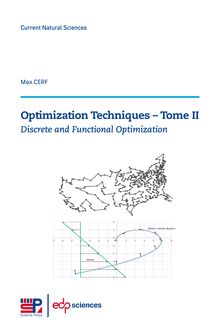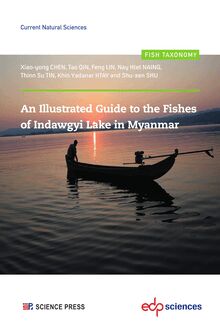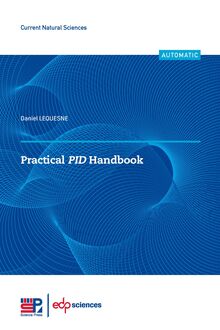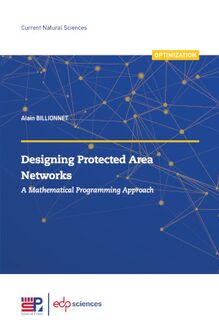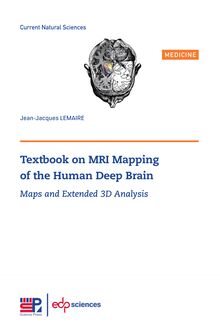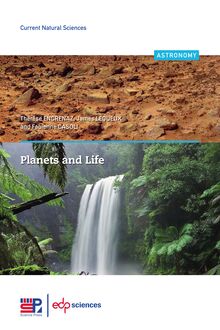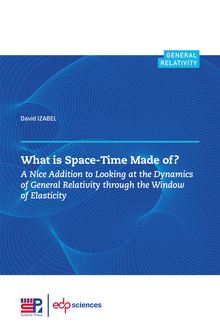-
 Univers
Univers
-
 Ebooks
Ebooks
-
 Livres audio
Livres audio
-
 Presse
Presse
-
 Podcasts
Podcasts
-
 BD
BD
-
 Documents
Documents
-
- Cours
- Révisions
- Ressources pédagogiques
- Sciences de l’éducation
- Manuels scolaires
- Langues
- Travaux de classe
- Annales de BEP
- Etudes supérieures
- Maternelle et primaire
- Fiches de lecture
- Orientation scolaire
- Méthodologie
- Corrigés de devoir
- Annales d’examens et concours
- Annales du bac
- Annales du brevet
- Rapports de stage
La lecture à portée de main
Découvre YouScribe en t'inscrivant gratuitement
Je m'inscrisEngineering Economy in Upstream Oil & Gas Field Development , livre ebook
Découvre YouScribe en t'inscrivant gratuitement
Je m'inscrisEn savoir plus
En savoir plus

Description
The business of upstream oil and gas industry is a complex process that involves multidisciplinary participation. Producing crude oil and natural gas from the subsurface reservoir rocks to the point of the selling terminal requires stage by stage processes that costs several hundreds of millions of dollars to the operating companies. Because of the capital intensive nature of upstream investments, every required process is challenged of its economic impact or benefits it will have on the project’s net present value (NPV). The techniques applied in determining the economics of these processes and their selection criteria are addressed in the book.
This book guides the reader through these strategic processes, and presents the participants involved in the business of upstream oil and gas prospecting and the conditions that dictate the field development and investment decisions by investors. It also reveals the shared interests and relationships that exist between international oil companies (IOCs) and national oil companies (NOCs) in the exploration and exploitation of their hydrocarbon resources and reserves. This text will serve the purpose of teaching and learning to those in the energy and financial sectors, as the methods, tools, and techniques discussed throughout the chapters will equip students, tutors, experts, and professionals with the necessary skills and knowledge of Exploration and Production (E&P) projects and energy financing and investment. The principles of project management as it applies in upstream oil/gas projects are discussed as well. And the criteria for project ranking, selection, and budgeting which are sine qua non to project financing and execution are well documented in this book.
About the Authors
Preface
Acknowledgements
CHAPTER 1
Bidding and Petroleum Fiscal Instruments
1.1 Concessionary License Agreement
1.2 Contractual Agreement
1.2.1 Production Sharing Contract (PSC)
1.2.2 Service Contract
1.2.3 Joint Venture Agreement
CHAPTER 2
Exploration & Reserve Estimation
2.1 Discovered Resources
2.1.1 Basics of a Petroleum System
2.1.2 Geophysical Methods for Oil & Gas Exploration
2.1.3 Volumetric Estimation of Hydrocarbons in Place
2.2 Recoverable Resources (Reserves)
2.2.1 Proved Reserves
2.2.2 Unproved Reserves
CHAPTER 3
Appraisal and Field Development Planning
3.1 Field Appraisal
3.2 Comprehensive Field Development Data
3.2.1 Geological and Reserve Data
3.2.2 Reservoir Data
3.2.3 Reservoir Simulation and Production Forecast
3.2.4 Drilling Program and Well Completion Design Plan
3.2.5 Production Period and Abandonment
3.3 Technological Requirement & Challenges
3.4 Safety and Environmental Policy
3.5 Production Operation, Workover, and Maintenance Plan
CHAPTER 4
Economic Analysis of a Typical Upstream Development Project
4.1 Basic Concepts in Economic and Financial Analysis
4.1.1 Economic Evaluation Indicators
4.1.2 Cash Flow Diagram
4.1.3 Discounting
4.1.4 Time Value of Money and Economic Equivalence
4.1.5 Depreciation and Salvage Value
4.1.6 Taxable Income
4.2 Case Study-Application of Economic Tools for Upstream Oil & Gas Project Evaluation
4.2.1 The Case Study (Data Presented Here Are not Real but Used for Exercise)
CHAPTER 5
Investment Decision and Project Selection
5.1 Capital Budgeting and Rationing
5.2 Project Ranking
5.3 Comparison of Project Alternatives
5.4 Inflation
CHAPTER 6
Project Management in Upstream Oil & Gas Field Development
6.1 An Overview of Project Management
6.2 Process Groups in Project Management
6.2.1 Project Initiating
6.2.2 Project Planning
6.2.3 Project Executing
6.2.4 Project Monitoring and Controlling
6.2.5 Project Closing
6.3 Work Breakdown Structure (WBS)
6.4 Design Proposals
6.5 Project Budgeting
6.6 Project Risk Plan, Assessment, and Management
6.7 Role of Project Manager and Team Management
6.8 Project Quality Management
Bibliography
Index
Sujets
Informations
| Publié par | EDP Sciences |
| Date de parution | 10 décembre 2020 |
| Nombre de lectures | 0 |
| EAN13 | 9782759825011 |
| Langue | English |
| Poids de l'ouvrage | 12 Mo |
Informations légales : prix de location à la page 1,3700€. Cette information est donnée uniquement à titre indicatif conformément à la législation en vigueur.
Extrait
-
 Univers
Univers
-
 Ebooks
Ebooks
-
 Livres audio
Livres audio
-
 Presse
Presse
-
 Podcasts
Podcasts
-
 BD
BD
-
 Documents
Documents
-
Jeunesse
-
Littérature
-
Ressources professionnelles
-
Santé et bien-être
-
Savoirs
-
Education
-
Loisirs et hobbies
-
Art, musique et cinéma
-
Actualité et débat de société
-
Jeunesse
-
Littérature
-
Ressources professionnelles
-
Santé et bien-être
-
Savoirs
-
Education
-
Loisirs et hobbies
-
Art, musique et cinéma
-
Actualité et débat de société
-
Actualités
-
Lifestyle
-
Presse jeunesse
-
Presse professionnelle
-
Pratique
-
Presse sportive
-
Presse internationale
-
Culture & Médias
-
Action et Aventures
-
Science-fiction et Fantasy
-
Société
-
Jeunesse
-
Littérature
-
Ressources professionnelles
-
Santé et bien-être
-
Savoirs
-
Education
-
Loisirs et hobbies
-
Art, musique et cinéma
-
Actualité et débat de société
- Cours
- Révisions
- Ressources pédagogiques
- Sciences de l’éducation
- Manuels scolaires
- Langues
- Travaux de classe
- Annales de BEP
- Etudes supérieures
- Maternelle et primaire
- Fiches de lecture
- Orientation scolaire
- Méthodologie
- Corrigés de devoir
- Annales d’examens et concours
- Annales du bac
- Annales du brevet
- Rapports de stage
